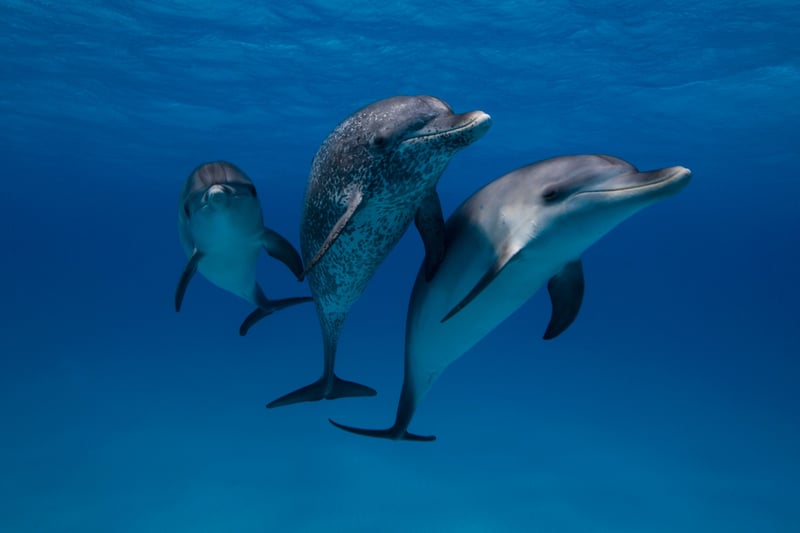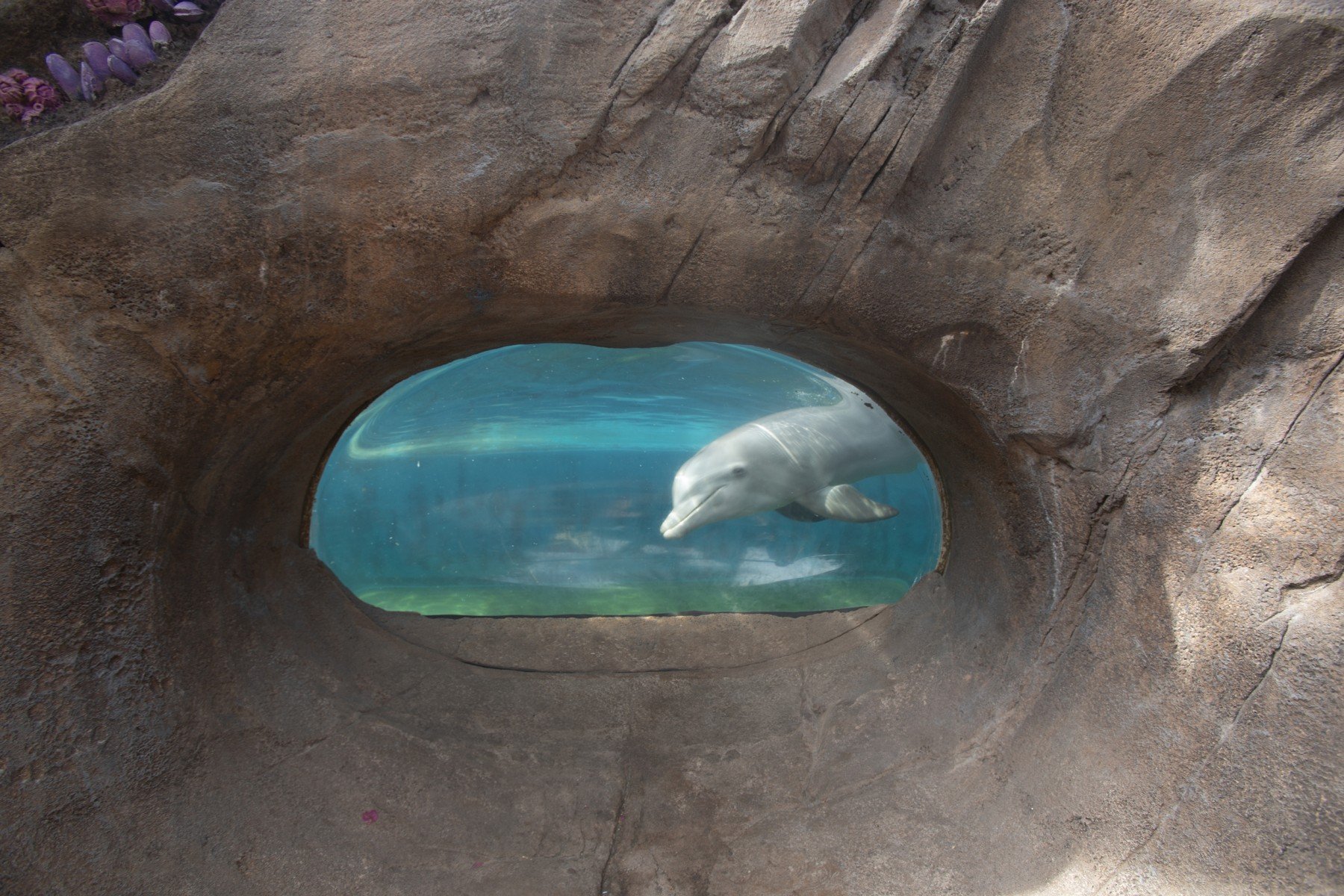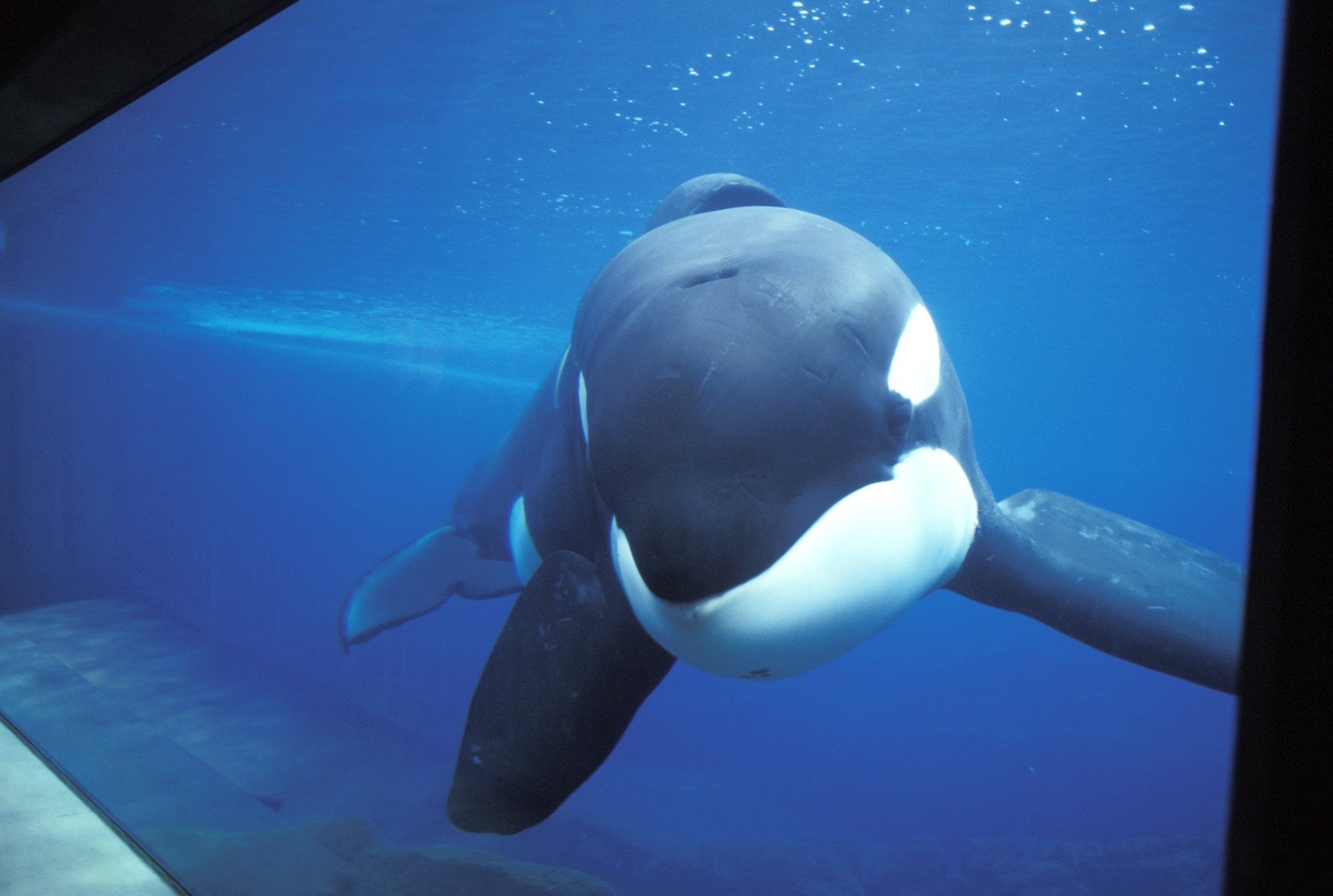
This World Oceans Day, discover why marine mammal captivity is cruelty—not conservation—including the truth behind dolphin captures, the stories of Tilikum and Lolita, and how you can support cruelty-free alternatives.
The ocean is vast, mysterious, and full of life. It’s home to some of the most intelligent and social beings on Earth—dolphins, whales, and countless marine animals who live complex lives beneath the waves.
On World Oceans Day, it’s important to shine a light not only on the beauty of our blue planet, but also on the cruelty that is often hidden from the public—especially when it comes to marine mammal captivity.
The Cruelty Behind the Glass
Dolphins balancing balls on their noses. Orcas being used as surfboards. Sea lions clapping to music. These may look like fun tricks to the public, but they’re the result of lives built on suffering. Marine mammals in captivity are deprived of everything that makes life worth living: social bonds, natural behaviors, and the freedom of the open ocean.
Instead of swimming 100 miles a day, orcas like Tilikum were forced to float listlessly in chlorinated tanks. Instead of exploring their coastal homes, dolphins are trapped in shallow pools under the hot sun, often suffering from stress, sunburn, and boredom. This isn’t education. This isn’t conservation. This is cruelty, plain and simple.

The Myth of Captivity “Conservation”
Some facilities claim that marine mammal captivity helps protect wild populations, but let’s be clear: that’s a myth.
Breeding dolphins in tanks does nothing to help the wild dolphins being hunted in Taiji, Japan. Teaching orcas to perform tricks doesn’t educate people about the importance of marine ecosystems. True conservation supports wild animals in the wild. Captivity not only fails these animals—it distracts from the urgent action we need to take to protect their habitats and lives in the ocean.
Taiji: Where the Suffering Begins
Every year in Taiji, Japan, dolphin families are driven into shallow coves, where some are slaughtered for meat while others are selected for a lifetime in captivity. The dolphin shows you see in aquariums and resorts? Some of those animals began their captive lives in that bloody cove.
This practice is not only inhumane—it’s unjustifiable. It's time the world recognizes that entertainment should never come at the cost of wild lives.
Tilikum and Lolita: Names We’ll Never Forget
Tilikum, the orca made infamous by the documentary Blackfish, spent over three decades in captivity. He was involved in multiple incidents that highlighted the psychological toll captivity takes on orcas, and his story ignited a global movement to end marine mammal captivity once and for all.
Lolita, who lived alone in one of the smallest orca tanks in the US at Miami Seaquarium, passed away before she could be released to sanctuary. Her death was a heartbreaking reminder that time is running out for the remaining marine mammals in tanks across the country.
Their stories sparked awareness—but awareness alone isn’t enough. We owe it to them to act.
Keiko and the Promise of Sanctuaries
You might remember Keiko as the star of Free Willy, but unlike the movie’s ending, Keiko’s real-life rescue and reintroduction to the wild was a landmark moment. Though he ultimately died of pneumonia, Keiko spent his final years swimming freely in the ocean, re-learning natural behaviors and making contact with wild orcas.

Keiko’s story showed the world that sea sanctuaries are possible. These protected coastal environments offer a middle ground for captive marine mammals—places where they can feel the ocean currents, live in enriched environments, and receive expert care without performing tricks.
The Rise of Wildlife Heritage Areas
Now, a new conservation model is emerging: Wildlife Heritage Areas. These are destinations that prioritize wild animals staying in the wild and offer ethical tourism experiences that celebrate nature without exploiting it.
By supporting Wildlife Heritage Areas instead of dolphinariums or marine parks, you’re choosing compassion over cruelty. You’re helping shift the tourism industry away from outdated practices and toward a future where wild animals are respected.
Take Action for Oceans and the Animals Who Call Them Home
This World Oceans Day, let’s honor the lives of Tilikum, Lolita, and every dolphin still waiting in a concrete tank. Let’s fight for a future where no animal is captured, bred, or confined for entertainment.
Demand the closure of Miami Seaquarium: This facility has a long history of animal welfare violations, and Lolita’s tragic death should have been the final straw.
Support the SWIMS Act: The Strengthening Welfare in Marine Settings (SWIMS) Act would prohibit the breeding and import of some cetacean species (like orcas, false killer whales, and belugas) for public display in the United States. After sending an email, follow up and call your legislators, urging them to co-sponsor and pass this vital bill.
We have the power to protect marine life—not by putting them on display, but by keeping them wild and free. This World Oceans Day, let’s not just empty the tanks—let’s break them.